What Is Cost Per Acquisition & How to Lower It
- Chase McGowan

- Jul 27, 2025
- 17 min read
Let's get straight to the point. Cost Per Acquisition (CPA) is the total price you pay to win one new customer. It’s not just another marketing acronym; it’s the most honest measure of your campaign's financial performance.
What Cost Per Acquisition Is Actually Measuring
CPA is the single most important metric for understanding your marketing ROI. Think of it this way: if your business is a locked door, your marketing campaigns are a ring full of keys. Your CPA isn't just the cost of the one key that finally worked—it's the total cost of trying every single key on that ring until the door swings open.
It bundles every dollar—ad spend, content creation, management fees—into one number that answers a simple, critical question: "How much did it cost us to get this one customer?"
Understanding your CPA reveals the true efficiency of your entire marketing machine. A high CPA might point to wasteful ad spend, messaging that isn't connecting, or a clunky checkout process. On the other hand, a low CPA is a beautiful thing. It means every part of your strategy is humming along, turning prospects into paying customers at a profitable rate.
This metric is your financial North Star. It forces a conversation about profitability that goes way beyond vanity metrics like clicks or impressions. After all, a million impressions are worthless if they don't lead to new business.
Why Your CPA Is Secretly Higher With an Agency
Here’s a hard truth most large agencies won’t tell you: their business model is often built in a way that works against lowering your CPA. Big, bloated agencies come with immense overhead—fancy offices, huge support staffs, and multiple layers of management. Guess who pays for that? You do. Those costs get baked right into your management fees, inflating your total marketing spend without adding proportional value.
This is where working with a dedicated Google Ads consultant makes all the difference. Your investment goes directly into a specialist’s time and expertise, not into funding an agency's administrative bloat. This lean, focused approach ensures every dollar is aimed at one goal: driving your CPA down and your profits up.
The core problem with the traditional agency model is that their primary goal is often their own growth, not your efficiency. A dedicated consultant's success, however, is directly tied to yours, creating a true partnership focused on tangible results.
To take back control, you first need a crystal-clear grasp of the CPA formula.
CPA at a Glance: The Core Components
Before you can optimize your costs, you have to know exactly what goes into the calculation. This simple breakdown demystifies the formula.
This table shows you how all the pieces fit together to give you that final, all-important number.
Component | Description | Example |
|---|---|---|
Total Cost of Campaign | The complete marketing spend for a specific period. This must include ad spend, agency/consultant fees, software costs, and any internal salaries. | You spend $4,000 on Google Ads and pay a $1,000 management fee. Your Total Cost is $5,000. |
Number of Acquisitions | The total count of new, paying customers gained from that campaign. This is not leads or clicks, but actual conversions into customers. | The $5,000 campaign resulted in 50 new customers signing up for your service. |
CPA Calculation | The simple formula is Total Cost divided by the Number of Acquisitions. | $100 CPA |
Once you see these components laid out, it becomes much clearer where you have leverage to improve performance and lower your acquisition cost.
Breaking Down the CPA Formula and Its Hidden Costs
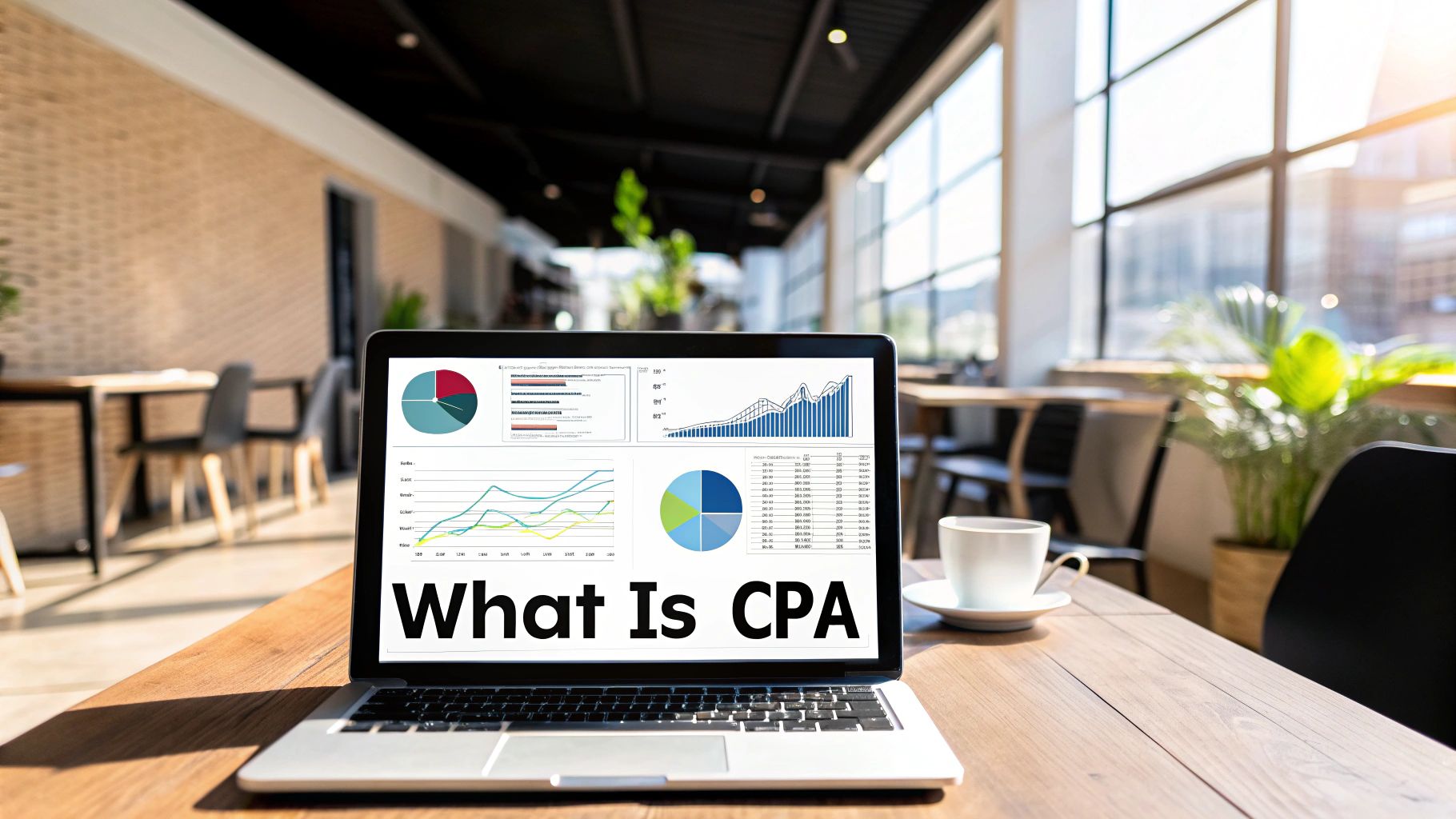
On the surface, the formula for Cost Per Acquisition seems simple enough: Total Marketing Cost ÷ New Customers. Easy, right?
But this is where most businesses get it wrong. The real power—and the most common point of failure—is what you decide to sneak into that "Total Marketing Cost" bucket. Getting this right is your biggest weapon. An honest calculation goes way beyond just your monthly ad spend on Google Ads. It has to account for every single dollar that went into winning that customer.
Don't treat this as just some academic exercise. If you get this wrong, you're flying blind, making big-budget decisions with flawed data and a completely warped view of your own profitability.
The True Cost of Acquiring a Customer
To get an accurate, real-world CPA, you have to sum up all the related expenses. A complete picture of your "Total Cost" includes a few key components that are shockingly easy to overlook.
Direct Ad Spend: This one’s the no-brainer. It's the money you pay directly to platforms like Google for every click or impression.
Creative & Development Costs: Did you pay a designer for your display ads? A developer to build or tweak your landing page? Those costs are absolutely part of the acquisition effort.
Software & Tool Subscriptions: Think about your analytics software, landing page builders like Unbounce, or the keyword research tools you rely on. They all belong in the calculation.
Internal Team Salaries: If you have an in-house marketing manager spending even part of their time on PPC, a portion of their salary needs to be factored in.
Management & Agency Fees: This is the big one. It's often the most critical—and murkiest—variable, especially if you're working with a large firm.
When you conveniently leave out these "hidden" costs, you end up with an artificially low CPA. It's dangerously misleading and makes your campaigns look far more profitable than they actually are.
Exposing the "Agency Bloat" in Your CPA
This brings us to the elephant in the room: the oversized, opaque fees charged by bloated marketing agencies. Big agencies have massive overhead. We're talking layers of account managers, project coordinators, and sales teams, not to mention their high-end office spaces. These operational costs don't do a thing to improve your campaign performance, but you can bet they are baked right into your monthly retainer.
This creates what I call “agency bloat.” A huge chunk of your fee is just feeding the agency’s complex structure instead of driving your results. Their management fee becomes a black box. You pay a large sum, and it’s nearly impossible to see how much of it goes toward actual expert strategy versus administrative fluff or the salary of a junior account manager who is really running your campaigns.
When an agency buries its operational costs in a vague management fee, your true Cost Per Acquisition becomes cloudy. This inflated figure makes it difficult to gauge real performance and traps you into accepting mediocre results.
This is the fundamental difference when you partner with a dedicated Google Ads consultant. The financial relationship is direct and completely transparent. My fee is for my expertise and my time spent optimizing your account—that's it. There's no bloat, no hidden overhead, and you’re not subsidizing a sales team.
Every dollar you invest is accounted for and directly tied to improving your performance. This gives us an honest, actionable CPA figure. It lets us see exactly what it costs to acquire a customer and gives us clear levers to pull to drive that cost down, maximizing your true return on investment.
How Bloated Agencies Secretly Inflate Your CPA

It’s a story I hear all the time. A sharp business owner—let’s call her Sarah—signs with a big, impressive-looking marketing agency. The pitch is polished, delivered by a senior strategist who talks a big game about data-driven results and proprietary methods. Sarah signs the contract, excited for the growth to come.
Then, reality sets in.
The senior strategist vanishes, replaced by a junior account manager who is clearly learning on Sarah’s dime. Communication slows to a crawl, and campaign performance stagnates. Her ad spend climbs month after month, but her customer numbers barely budge. Her CPA is going through the roof, yet the agency reports are full of vanity metrics like clicks and impressions.
Sarah is experiencing the classic agency bait-and-switch, a primary reason why bloated firms secretly inflate your true Cost Per Acquisition.
The "B-Team" Problem
Large agencies are sales machines. Their most experienced and talented people—the A-team—are masters at one thing: closing deals. They wow you in the sales process, showcasing past successes and making you feel like you’re their top priority.
But once the ink is dry, your account is often handed off to the B-team. This group is typically made up of less experienced, sometimes even entry-level, account managers. They follow a generic playbook and simply lack the deep strategic insight needed to navigate the complexities of your specific market.
Your Google Ads account, the engine of your lead generation, is now being managed by someone without the expertise to truly optimize it. They might keep the campaign running, but they won't make the critical, nuanced adjustments that slash your CPA and maximize profitability. You’re paying a premium price for junior-level work, and your CPA reflects it.
One-Size-Fits-All Strategies
Big agencies manage dozens, sometimes hundreds, of clients. To handle this volume, they have to rely on standardized, cookie-cutter strategies. They apply the same basic keyword structures, bidding models, and ad copy formulas to every account, no matter the industry or business goals.
This assembly-line approach completely ignores what makes your business unique. It fails to account for your specific customer journey, your market position, and your competitive pressures.
A generic strategy will always produce generic, mediocre results. When an agency applies a one-size-fits-all template to your unique business, a high CPA is not a risk; it's a certainty.
An expert consultant, on the other hand, lives and breathes custom strategy. My work begins by deeply understanding your business, your customers, and your economic model. Every single decision—from keyword selection to landing page advice—is custom-built to achieve one goal: acquiring customers for you as profitably as possible.
Slow Reactions and Wasted Spend
The world of digital advertising moves incredibly fast. A competitor's move, a shift in search trends, or a dip in campaign performance requires an immediate, decisive response. In a large agency, this kind of agility is structurally impossible.
Think about this common scenario:
An underperforming ad is wasting hundreds of dollars a day.
The junior account manager spots the issue but needs approval from their manager to make a significant change.
That manager is in back-to-back meetings and doesn't see the email for hours.
By the time the change is approved and implemented, a full day or more has passed, and hundreds or even thousands of dollars have been burned.
This bureaucratic lag is death by a thousand cuts for your budget. Every hour of indecision and delay directly inflates your Cost Per Acquisition. An independent consultant has no such red tape. I see a problem, I analyze it, and I fix it—instantly.
This agility is a core advantage that directly protects your ad spend and keeps your CPA low. You get an expert who is not only watching your account but is empowered to act on your behalf immediately. If you've felt this pain, you're not alone, and it's a key reason why hiring a senior Google Ads consultant often beats working with a bloated PPC agency.
The contrast is undeniable. The agency model is built for its own scale, often at the direct expense of your efficiency. The consultant model is built for your success, where expertise, agility, and a singular focus on your profitability are the only things that matter.
Industry CPA Benchmarks and The Agency Smokescreen

Knowing the average Cost Per Acquisition in your industry can feel like having a secret map. It gives you a frame of reference—a "you are here" marker to see how you stack up against the competition.
But this map can also be a dangerous trap, especially when it's being read to you by the wrong guide.
A bloated agency loves industry benchmarks. Why? Because they can wave them around like a shield to hide mediocre performance. If your CPA is high, they’ll point to an even higher industry average and say, "See? We're actually doing pretty well!"
It’s a convenient excuse. It’s a defensive, lazy approach that protects their management fee and encourages you to settle for average. A true Google Ads expert sees that same benchmark not as a shield, but as a starting line—a number to be decisively beaten.
Benchmarks Are a Starting Point, Not a Destination
The truth is, what is cost per acquisition can swing wildly between industries. It all depends on factors like how fierce the competition is, how long your sales cycle is, and the complexity of your product.
Just look at the huge variance in Customer Acquisition Cost (CAC), a closely related metric. The hyper-competitive fintech space sees an average CAC of around $1,450. Meanwhile, eCommerce SaaS businesses can often acquire customers for as low as $274.
Other sectors like legal services and manufacturing sit at the higher end, with average CPAs of $749 and $723 respectively, simply because of the intense investment needed to land each client. You can discover more insights about these industry acquisition costs to see just how wide that spectrum really is.
These numbers give you context, but they are not your destiny. An agency might see a $749 average CPA in the legal field and aim to hit $740. An expert consultant sees that $749 and immediately starts building a strategy to hit $500.
A benchmark is just the average performance of all competitors, including the ones who are failing. An expert partner’s job is to make you an outlier, not to help you blend in with the crowd.
The goal isn't to be "average." The goal is to build a real competitive advantage that fuels profitable growth for your business.
How an Expert Consultant Beats the Benchmark
A dedicated consultant doesn't just accept industry standards; they actively work to defy them. This isn't magic. It's a fundamentally different, more focused approach that a large agency's structure can't replicate.
Here’s how an expert turns your ad spend into a powerful advantage, no matter what the "average" company is doing:
Deep Dive into Your Economics: We don't just look at CPA in a vacuum. We connect it to your Customer Lifetime Value (LTV). A higher CPA might be perfectly fine if it brings in a customer who will spend ten times that amount over their lifetime. Agencies often miss this crucial connection because they aren't measured on your profitability.
Surgical Campaign Structure: Instead of using generic, cookie-cutter templates, an expert builds campaigns tailored to your specific profit margins and customer segments. This means we can bid more aggressively for high-value customers and pull back on less profitable ones—a level of detail a junior account manager can't provide.
Relentless Optimization: Beating the benchmark requires constant testing of every single variable—ad copy, landing pages, audience targeting, you name it. It's an active, hands-on process that bloated agency structures simply can't support.
This relentless drive to improve is what separates a true partner from a simple service provider. My success is measured by your success, and we've seen firsthand how a focused strategy can demolish industry benchmarks. You can see the results for yourself in our collection of Google Ads case studies, which showcase real-world performance that leaves the averages in the dust.
Ultimately, industry benchmarks are just data. In the hands of a complacent agency, they are an excuse. In the hands of a dedicated expert, they are a target to be obliterated.
How I Lower Your CPA (That an Agency Can't)
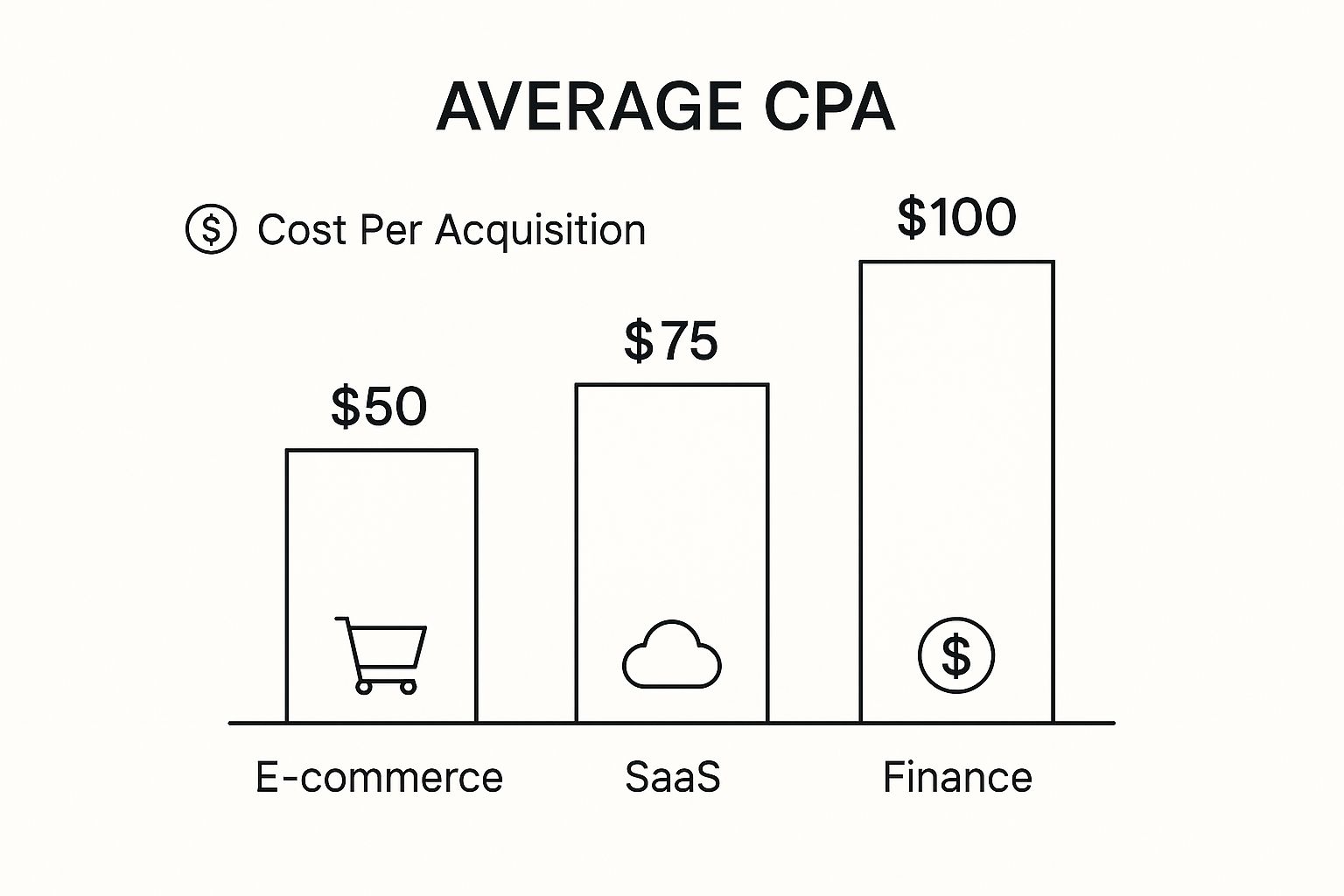
Alright, you know the agency model is broken. So, what’s the fix?
Lowering your Cost Per Acquisition isn't about flipping a single switch. It's about a disciplined, expert-led process of constant refinement. This is the hands-on work that generic agencies, with their one-size-fits-all playbooks, just can't pull off.
What follows isn't theory. These are the practical, in-the-trenches techniques I use to cut the fat from Google Ads accounts and drive down CPA. Each one is a shift from passive account management to active, expert-driven optimization. That's where the profit is found.
Master Your Keywords with Surgical Precision
Your keywords are the absolute foundation of your Google Ads account. Get them wrong, and nothing else matters. It's also where I see agencies get lazy, burning cash on overly broad terms that attract window shoppers, not buyers. An expert approach is far more granular.
This comes down to two things I'm obsessive about:
Aggressive Negative Keyword Implementation: Think of your negative keyword list as a bouncer for your ad budget. It stops your ads from showing up for searches that are related but totally irrelevant. If you sell high-end "leather briefcases," you have to block terms like "free," "used," or "repair." Otherwise, you're just paying for clicks from people who will never, ever convert. A specialist hunts for this wasted spend daily, while an agency might glance at their negative list once a quarter—if you're lucky.
Targeting High-Intent Long-Tail Keywords: Broad keywords like "running shoes" are a money pit. They're expensive and attract people who are just starting to look. On the other hand, long-tail keywords like "best trail running shoes for wide feet" are gold. They're less competitive, cheaper, and signal someone is much, much closer to pulling out their credit card. I build entire campaigns around these high-intent phrases, scooping up qualified buyers that broad-stroke strategies completely miss.
Getting keywords right is a massive difference-maker. It’s how you guarantee your budget is only spent reaching the most relevant, motivated people.
Relentlessly Optimize for Quality Score
Google's Quality Score is basically a grade on how relevant your keywords, ads, and landing pages are. A higher Quality Score means lower ad costs and better ad positions. It's that simple. Agencies often treat it like some background metric they can't control, but a true expert sees it as the most powerful lever for slashing CPA.
A high Quality Score is Google rewarding you for giving searchers exactly what they're looking for. It's the best way to lower your CPA without touching your bids, because Google literally gives you a discount on every single click.
Here’s how I actively work to improve it:
Craft Hyper-Relevant Ad Copy: Your ad headline has to be a mirror of what the user searched. If they type in "emergency plumber in Brooklyn," your ad headline better say "Emergency Plumber in Brooklyn," not some generic "Plumbing Services." It creates an instant connection and sends your click-through rates soaring.
Ensure Landing Page Congruence: The promise you make in your ad must be the first thing a user sees on your landing page. If your ad mentions a "50% off discount," that offer needs to be front and center on the page. This consistency is crucial for both your Quality Score and, more importantly, your conversion rates.
Improve the Page Experience: Is your landing page fast? Is it mobile-friendly? Is it easy to navigate? Google will punish you for sending users to slow, clunky pages. A smooth experience is non-negotiable.
Move Beyond Flawed Automation with Strategic Bidding
Look, Google's automated bidding can be a useful tool. But trusting it blindly is a fast way to burn through your budget. An agency might "set it and forget it," but an experienced consultant uses a hybrid approach—blending smart automation with critical manual oversight.
This means getting granular with strategic bid adjustments for your highest-performing segments:
Device: If you see mobile users converting at a much higher rate, you bet we're increasing bids for mobile searches.
Location: We bid more aggressively in the specific cities or even zip codes that drive the most profit. Why pay the same for a click in a dead zone?
Time of Day: If you know your best customers convert between 9 AM and 5 PM, we can dial back bids during off-hours to make sure your budget is there when it counts.
This hands-on management makes sure your budget is spent with maximum intelligence. Many of these principles are foundational to the top search engine marketing strategies to boost your ROI, showing how these optimization efforts all work together.
The table below breaks down the fundamental difference in approach. It’s not just about philosophy; it’s about execution that directly impacts your bottom line.
Agency Approach vs. Expert Consultant Approach
Campaign Element | Typical Agency Approach | Expert Consultant Approach |
|---|---|---|
Keyword Strategy | Relies on broad match and automated suggestions. Updates negative lists quarterly. | Focuses on high-intent long-tail keywords. Hunts for new negative keywords daily/weekly. |
Quality Score | Views it as a passive metric. Uses generic ad copy templates. | Actively manages it as a primary CPA lever. Crafts hyper-relevant ad and landing page experiences. |
Bidding Strategy | Sets "Target CPA" or "Maximize Conversions" and lets it run on autopilot. | Uses a hybrid model—combines automation with manual bid adjustments for device, location, and time. |
Account Structure | Often uses a standardized, one-size-fits-all campaign structure. | Builds a custom account architecture based on the client’s specific business goals and margins. |
This isn't just a different way of working—it's a fundamentally better way to manage high-stakes ad spend. A dedicated consultant actively pulls these levers, while a standardized agency approach leaves these crucial savings on the table.
Why a Dedicated Consultant Is Your Unfair Advantage
So far, we've picked apart the Cost Per Acquisition metric, exposed how bloated agency models inflate it, and walked through real strategies to bring it down. But this is the most important part of the entire guide. Your CPA isn't just a number on a report; it's the pulse of your marketing's profitability.
The key to a lower CPA and real, sustainable growth isn’t a bigger budget or a fancier agency office. It’s specialized, dedicated expertise. It's time to stop thinking of an expert as a "cost" and see them for what they are: a high-return investment in a strategic partner.
Big agencies are built for their own growth, not your efficiency. Their model thrives on volume, standardized playbooks, and layers of staff that add to their overhead—and your bill. A dedicated consultant operates on a completely different model. My success is tied directly to your success. My reputation is built on the results I deliver for your business, period.
This creates a powerful, built-in alignment. Your growth is my growth. Your profitability is my only KPI.
Direct Access to Top-Tier Expertise
When you sign with a large agency, you get the classic bait-and-switch. The senior expert sells you, but a junior account manager runs your campaigns. You’re paying a premium for experience, but the person managing your customer acquisition—the lifeblood of your business—is still learning the ropes.
With an independent Google Ads consultant, that entire problem vanishes. You get the expert, 100% of the time. The person who audits your account, builds your strategy, and optimizes your campaigns is the same seasoned pro you hired from day one.
This direct access is your unfair advantage. There's no B-team. No miscommunication between a senior strategist and a junior employee. You get undiluted expertise applied right to your campaigns, every single day.
Unmatched Agility and Speed
In the world of PPC, speed is a weapon. A competitor launches a new offer, search trends pivot overnight, or a campaign suddenly starts bleeding money. A bloated agency’s response gets bogged down in internal red tape—endless email chains, approval layers, and internal meetings. Every hour of delay is wasted ad spend that drives your CPA sky-high.
As your dedicated consultant, I have no bureaucracy. I see a problem, I fix it. I spot an opportunity, I grab it. This agility means we can pivot strategy instantly, protecting your budget and capitalizing on market shifts before your competitors have even finished their morning coffee.
Hiring a dedicated expert isn't an expense; it's an investment in a partner whose singular focus is your bottom line. Their reputation is on the line with your results, creating a powerful alliance for profitable growth.
Transparent Costs and a Singular Focus
The financial arrangement with a consultant is refreshingly simple. My fee pays for my expertise and my time, dedicated solely to optimizing your account. There are no hidden overhead costs, no administrative bloat, and no line items to fund an agency’s sales team or fancy downtown office.
Every dollar you invest with me goes directly toward one thing: improving your CPA.
This transparency gives you a crystal-clear view of your marketing investment, leading to smarter, data-backed decisions. My focus is singular: make your business more profitable. It’s a simple, powerful promise that a faceless agency juggling competing priorities can never truly match. You now know that the key to unlocking sustainable growth isn’t a bigger team—it’s a better partner.
Common CPA Questions—Answered
Alright, you get what Cost per Acquisition is. But making it work for your business is where the real questions pop up. Let's cut through the noise and give you some straight answers to what I hear most often from business owners who are ready to get serious about managing their CPA.
What’s a Good CPA, Really?
There's no magic number. A “good” CPA is completely relative.
For a SaaS company selling a high-ticket subscription, a $500 CPA might be a home run. For an e-commerce store selling $50 t-shirts, anything over $25 could sink the business. It all comes down to how your CPA stacks up against your Customer Lifetime Value (LTV) and profit margins.
Forget industry benchmarks. They’re often just an excuse bloated agencies use to justify so-so results. The real goal is constant improvement—always looking for ways to widen the gap between what you pay for a customer and what that customer is actually worth to you.
How Long Until I See a Lower CPA?
You can see the needle move pretty quickly. In the first 30-60 days, an experienced consultant can usually score some quick wins. Think of it as plugging the biggest leaks in the boat—adding aggressive negative keywords, running sharp ad copy tests, and cutting immediate budget waste. These actions show an impact right away.
But for deep, lasting reductions, you're looking at a 3-6 month runway. This is where the real strategic work happens: overhauling landing pages, refining audience targeting, and running structured A/B tests that build on each other. A true expert just gets you there faster by knowing which levers to pull first, skipping the slow, bureaucratic process you'd get from a big agency.
But is a lower CPA always better? Not necessarily. Chasing an impossibly low CPA can mean you're not spending enough to reach new, valuable pockets of your audience. Sometimes, a slightly higher CPA is perfectly fine if it brings in higher-value customers with a much greater LTV.
The goal isn't just to slash costs; it's to find the sweet spot where you're getting the most profitable customers you can. It’s about maximum efficiency, not just a race to the bottom. That's the strategic balance a real partner helps you find.
Tired of watching bloated agencies burn your budget? At Come Together Media LLC, I provide direct, expert Google Ads consulting focused on one thing: lowering your CPA and maximizing your profit. Let's build a strategy that works for your bottom line, not an agency's overhead. Schedule your free initial consultation today.





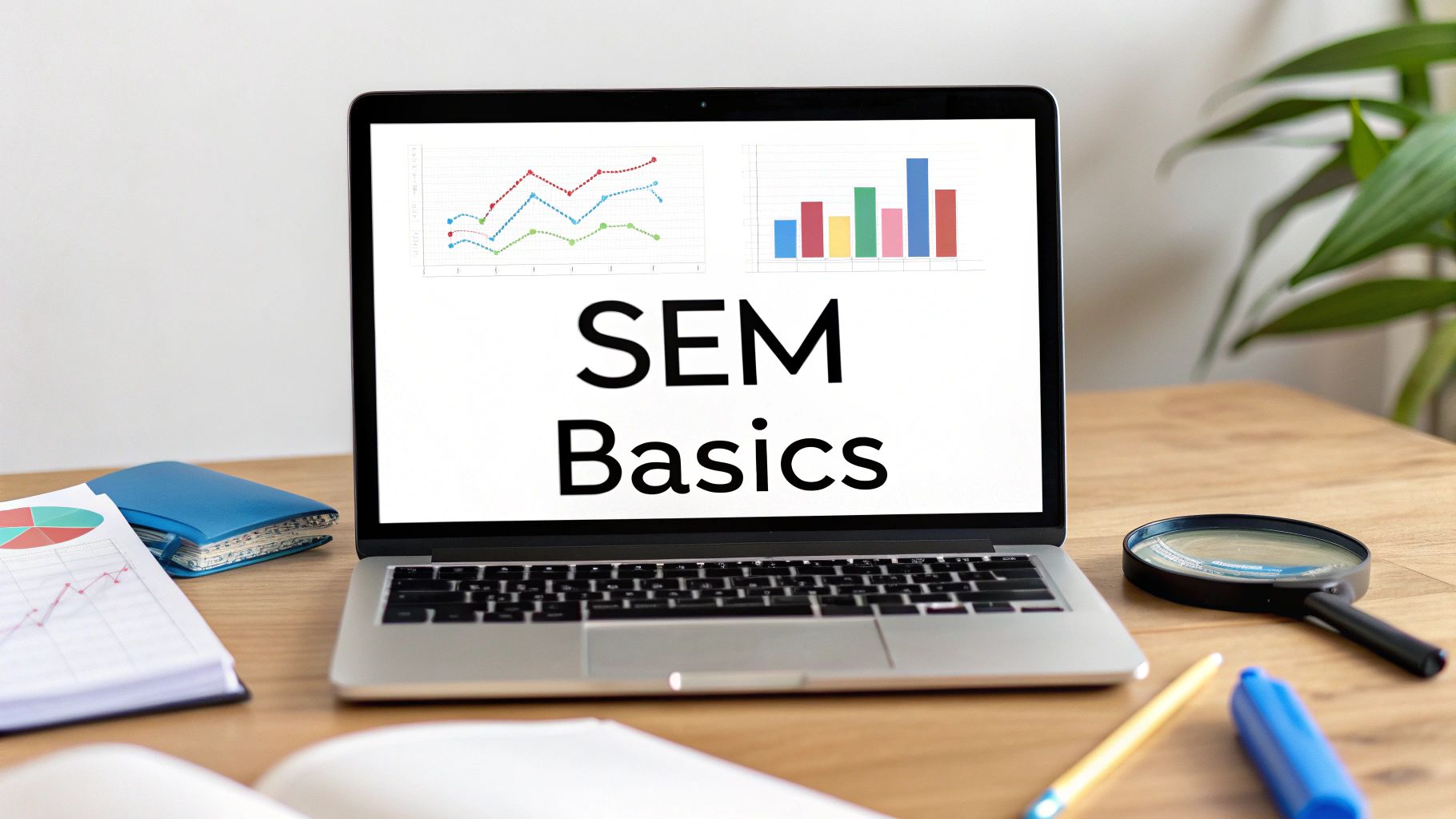
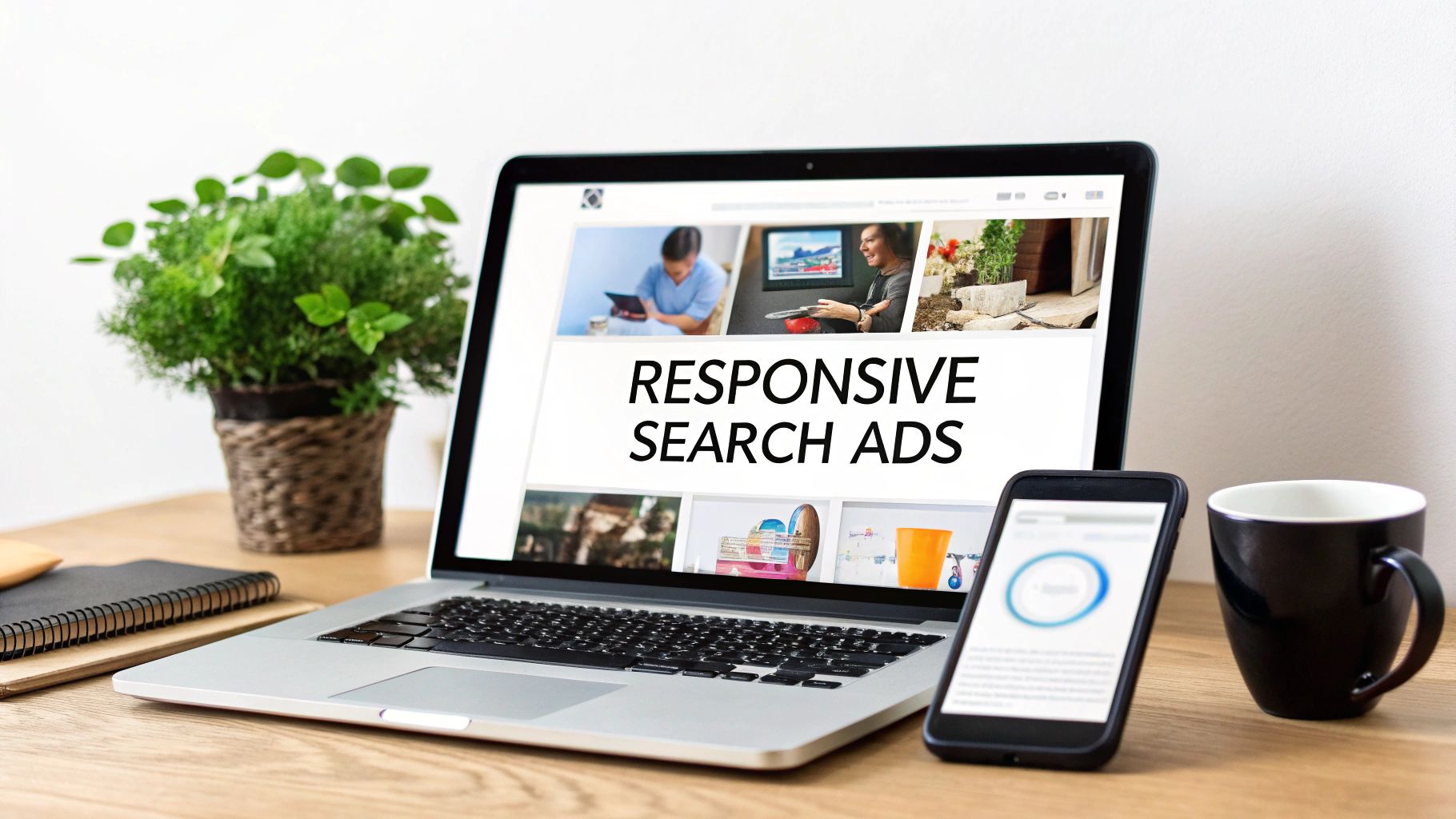
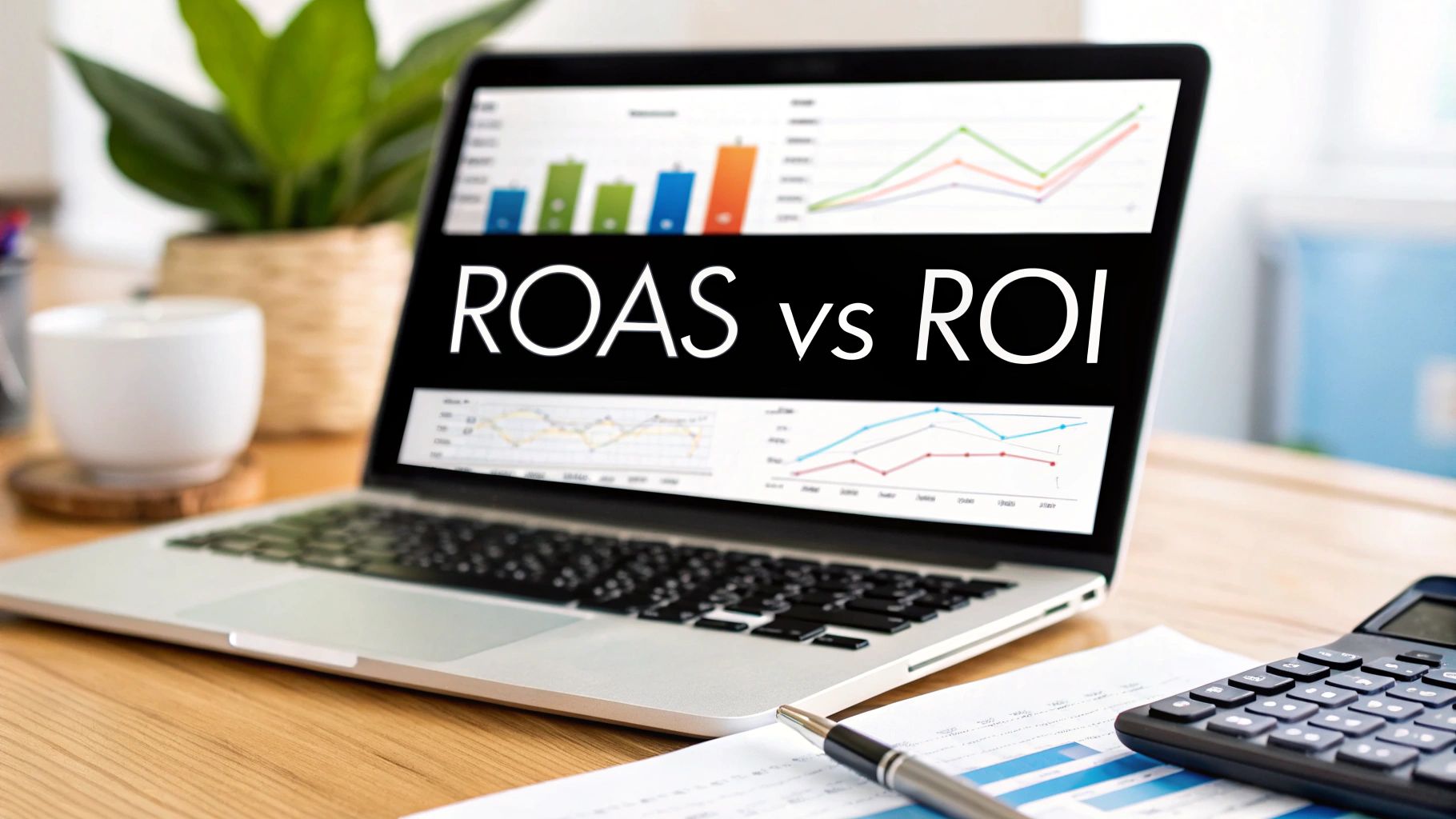
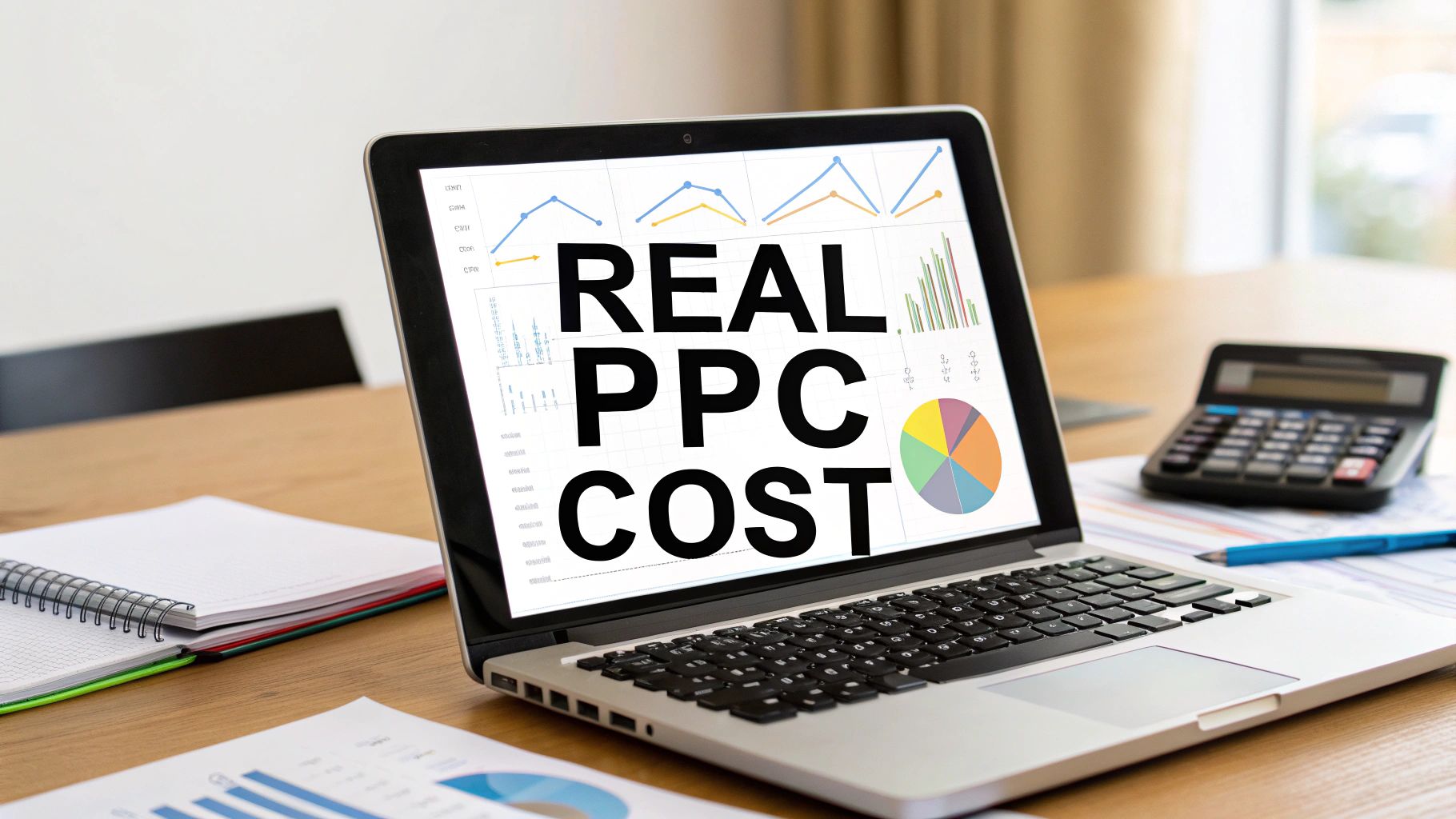
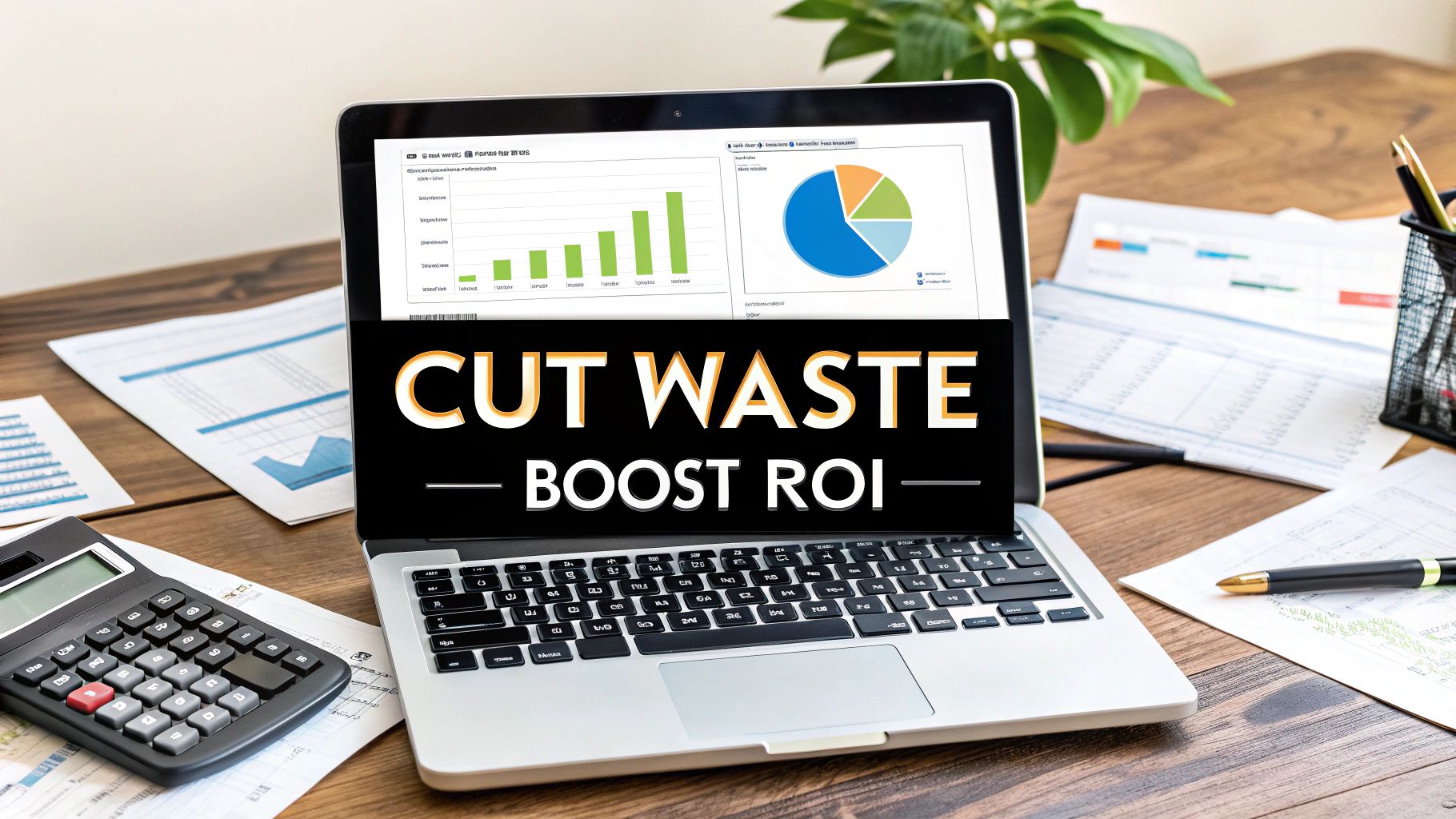
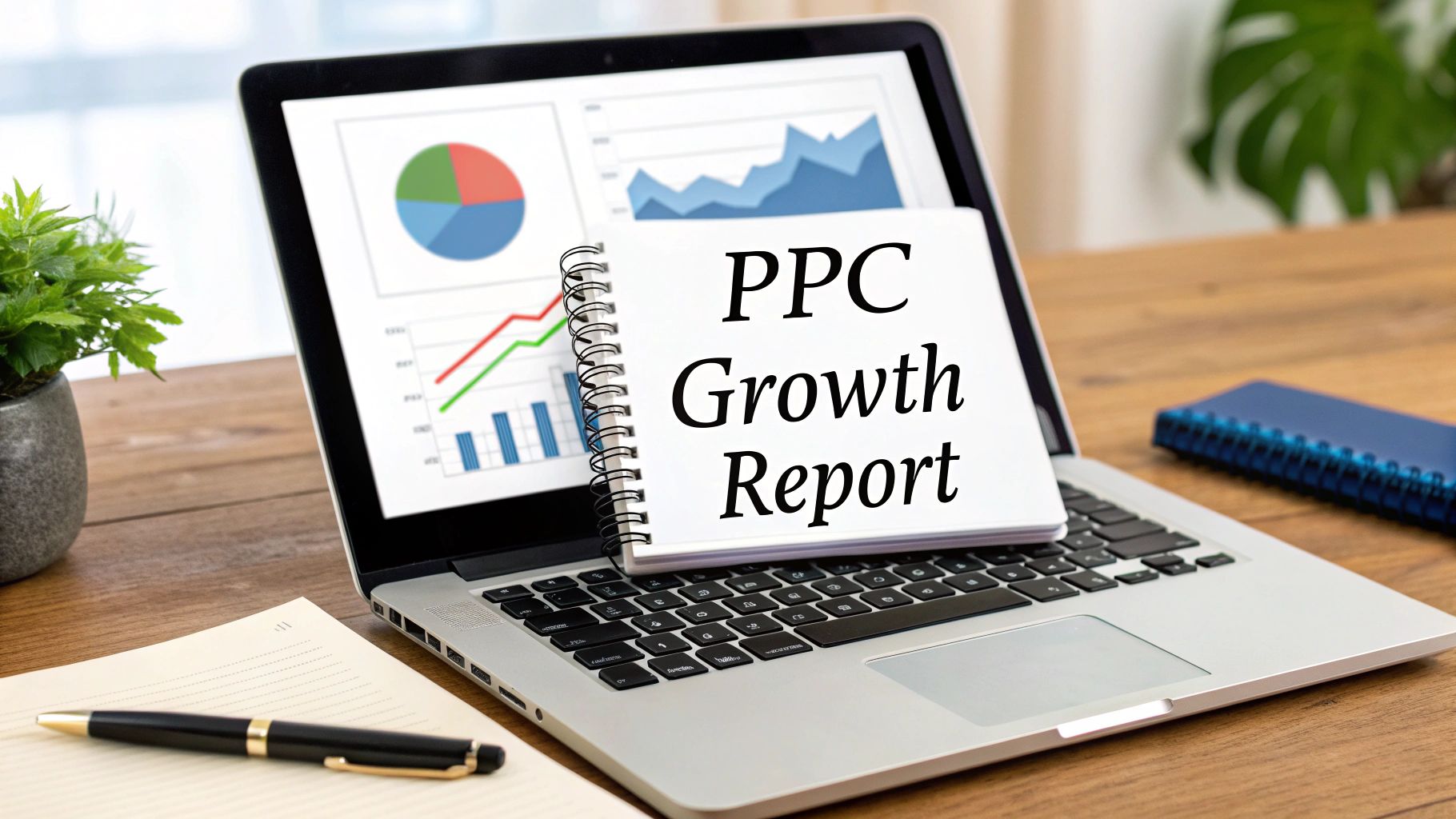
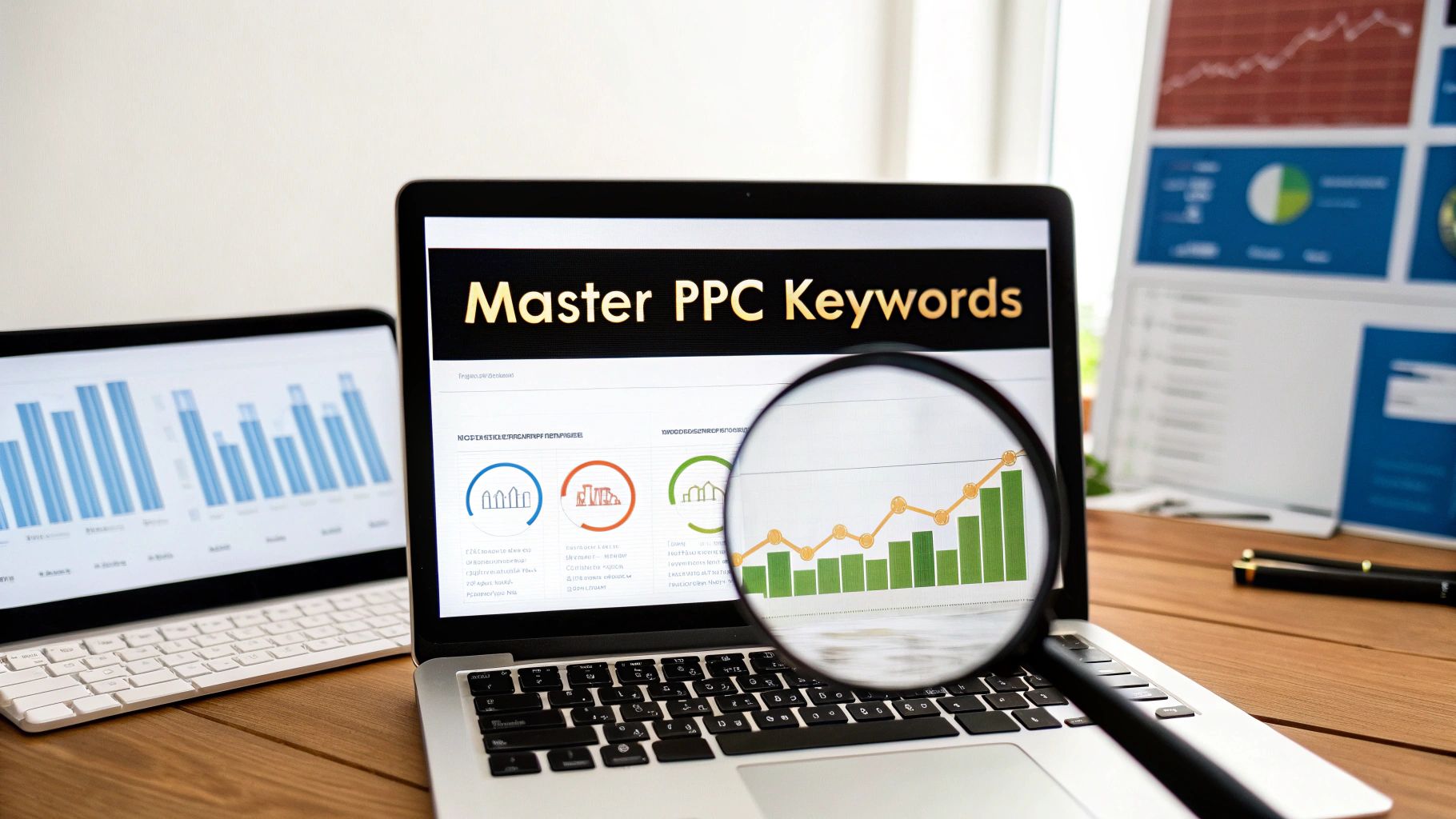
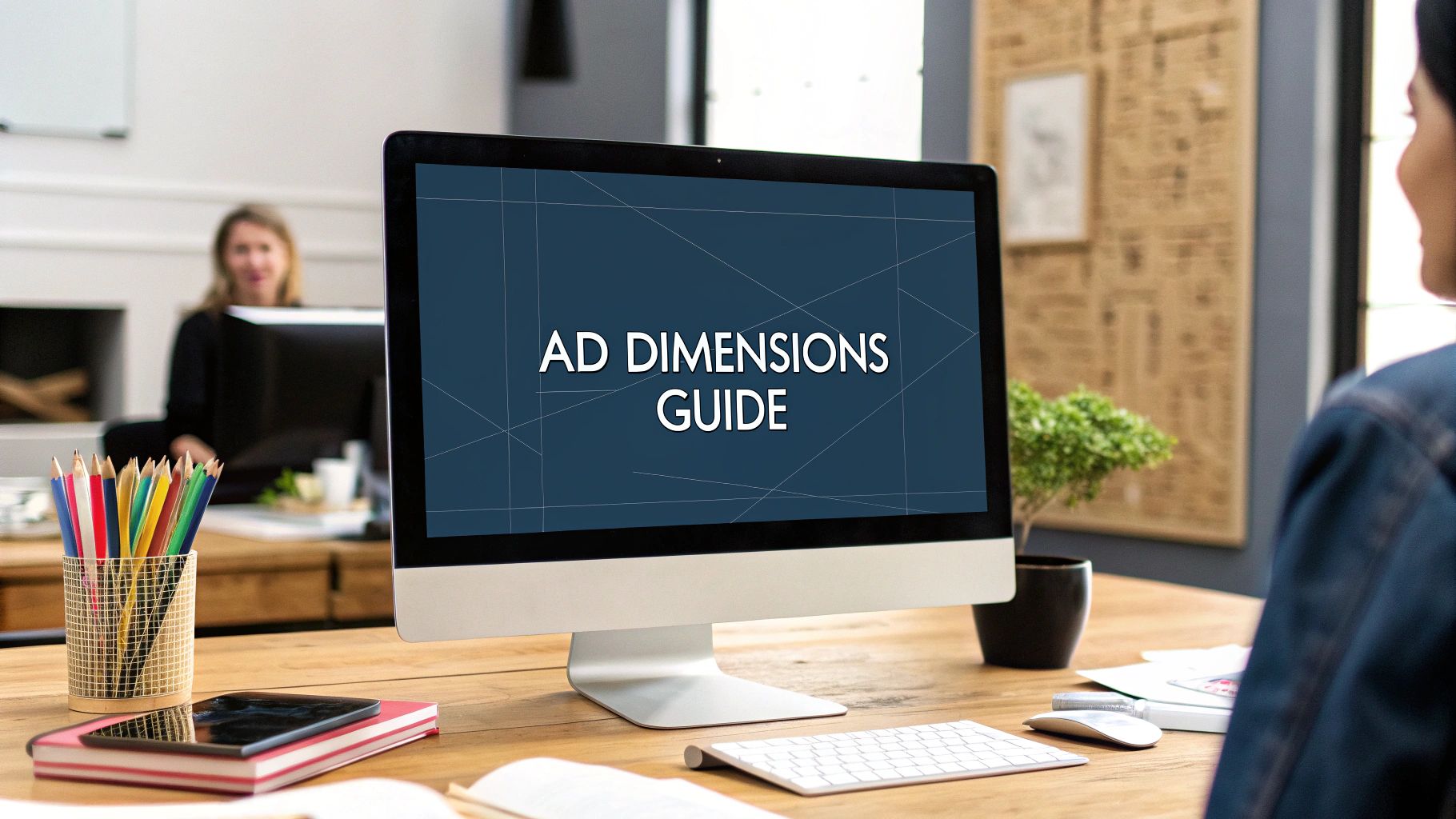
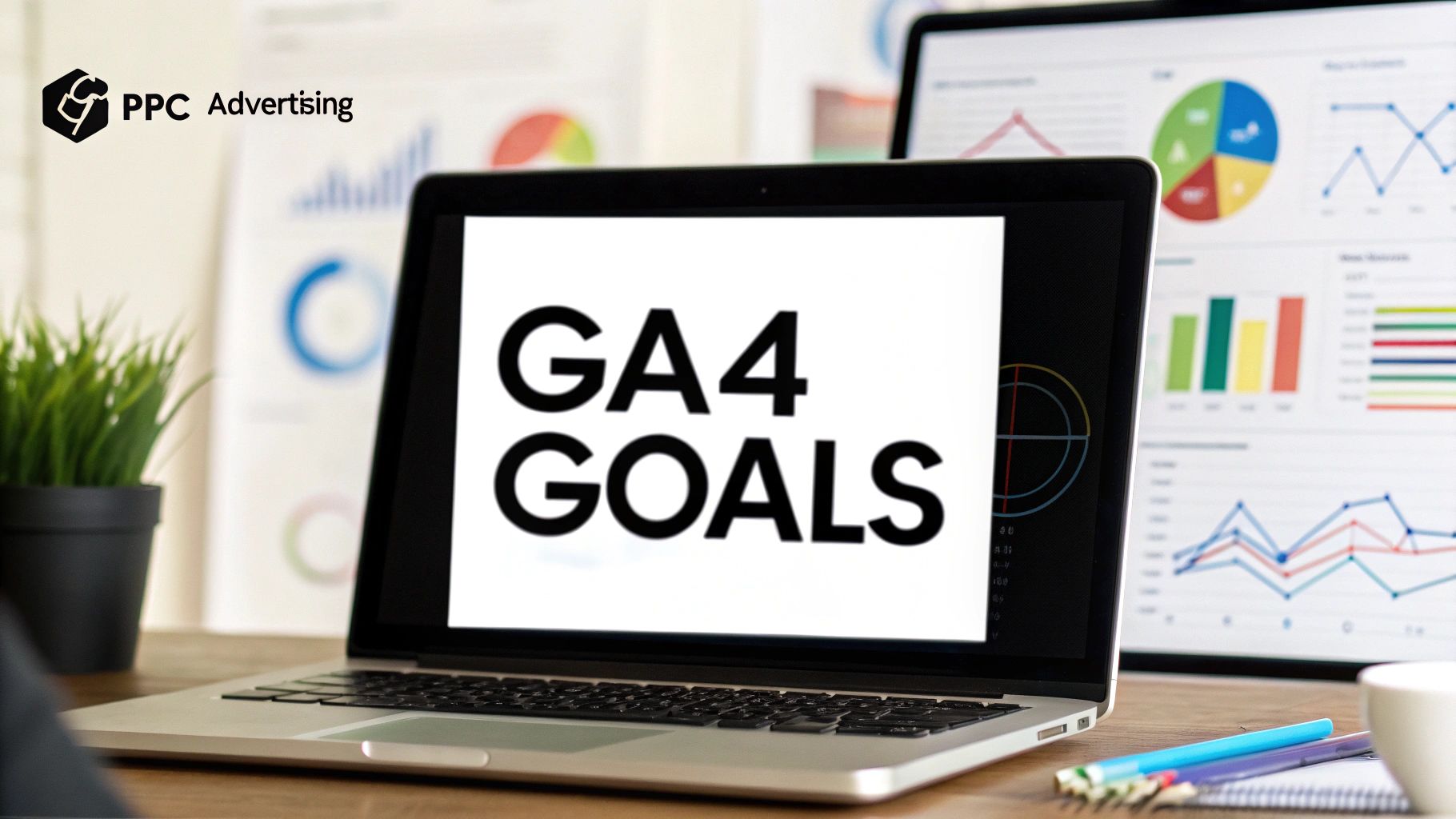
Comments